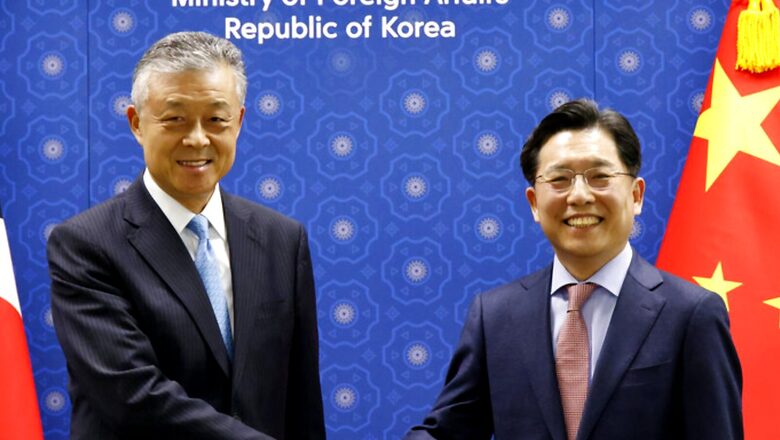
views
Last week, South Korea’s National Intelligence Service became the first in Asia to join NATO’s cyber defence group—a step that risks inflaming tensions with regional giant China and the old enemy North Korea.
The NIS said in a statement that it had been accepted as a contributing participant for NATO’s Cooperative Cyber Defence Centre of Excellence (CCDCOE), a cyber defence hub founded in Tallinn, Estonia, in May 2008 and focused on cybersecurity research, training, and exercises.
South Korea had been trying to join CCDCOE since 2019 to learn more about threat response methods and ways to defend critical infrastructure, with the overarching goal of having world-class capabilities to respond to those threats.
China and North Korea
The decision, according to Hu Xijin, who is the editor of the Chinese Communist Party mouthpiece The Global Times, is an affront to Beijing and even lays the framework for the Asian war.
“If South Korea takes a path of turning hostile against its neighbours, the end of this path could be a Ukraine,” he wrote.
Despite the fact that the cyber defence group is separate from the NATO command structure, Chinese military analysts reportedly said that Beijing was concerned about the admission of its near neighbour and American partner to the group—and this could threaten Chinese security interests in the region.
China views NATO as domineering and expanding, according to Shanghai-based military researcher Ni Lexiong, and South Korea’s decision to join the centre certainly does not benefit China. But he told South China Morning Post that Seoul would have taken Beijing’s interests and friendship with China into account.
According to a retired People’s Liberation Army colonel and military commentator, China understands that South Korea’s admission to the group does not imply membership in the alliance, but Beijing is not pleased as cyberwarfare is becoming a new battlefield.
Similarly, South Korea has been also under threat from North Korea which necessitated the enhancement of its defence capabilities.
So analysts believe that South Korea relies on China to put influence and pressure on North Korea in order to control its actions.
NIS’s joining of the group also happens at a time when President-elect Yoon Suk-yeol of South Korea, who will be taking the office this week, has promised to be tougher on Pyongyang. He is anticipated to forsake his predecessor’s Sunshine Policy, which sought to improve relations with North Korea through dialogue.
However, it is also believed that South Korea’s principal security and national defence goal is to neutralise North Korean nuclear missile threats. But analysts believe that in order to do this Seoul must not only form an alliance with the United States but also collaborate with China—considering the fact that China has a strong relationship with North Korea.
Cyberwarfare
Cyberthreats from China and North Korea are something that cannot be overlooked, as both countries, in the past few years, have sheltered an army of cyberthreat actors.
The Korean Atomic Energy Research Institute (KAERI), a South Korean nuclear research body, claimed last year that it was hacked by the North Korean advanced persistent threat (APT) group Kimsuky.
It was one of the several attacks by Kimsuky and other North Korean state-backed APT organisations which targeted the South Korean government and national infrastructure.
At that time, Ha Tae-keung of the People Power Party, South Korea’s main opposition party, said, “If the state’s key technologies on nuclear energy have been leaked to North Korea, it could be the country’s biggest security breach, almost the same level as a hacking attack by the North into the defence ministry in 2016.”
In the case of China, South Korean institutions involved in the construction of an advanced missile defence system and radar were targeted by Chinese hackers linked to the Chinese People’s Liberation Army, said cybersecurity firm FireEye in 2017.
Even in 2013, according to some reports, South Korean officials said that a cyberattack on South Korean banks and broadcasters originated from a Chinese IP address.
However, considering all these facts as well as what has been happening currently during the Russia-Ukraine conflict in terms of using cyberspace as a tool of war, South Korea’s decision to join the CCDCOE is understandable.
After joining the NATO group, the South Korean agency NIS said, “Cyberthreats are causing great damage to not only individuals but also separate nations and also transnationally, so close international cooperation is crucial.”
Read all the Latest News here


















Comments
0 comment